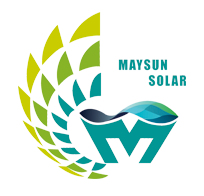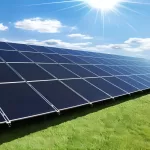In today’s rapidly evolving solar market, selecting the right solar modules is critical to improving energy efficiency and ensuring the long-term stability of the system. However, different types of rooftops and environmental conditions require specific module characteristics. This article will explore which photovoltaic modules are best suited for various installation environments to help you make more informed decisions when choosing your solar panels.
Table of Contents
Residential Rooftop Solar
System Requirements:
Aesthetic Consistency: Solar modules should ideally be black to maintain a sleek and elegant appearance that harmonizes with the overall visual style of the roof, ensuring no disruption to the building’s aesthetic coherence.
Lightweight Design: Solar modules should be as lightweight as possible, with individual panel sizes not exceeding 2 square meters to facilitate installation and maintenance. This minimizes the load on the roof structure.
Superior Heat Dissipation: Given the close proximity to the roof, ventilation and heat dissipation are often limited. Solar panels with excellent cooling performance should be chosen to reduce the risk of fire due to overheating.
Low Temperature Coefficient: Panels with low temperature coefficient technology ensure efficient energy generation even when cooling conditions are suboptimal, as this keeps the system’s efficiency high.
Anti-Hot Spot Performance: Modules should possess strong anti-hot spot capabilities to ensure safe operation in complex residential environments, lowering the risk of operational failures and fire hazards.
Glare-Free Design: The modules should feature a low-reflectivity design to minimize glare and prevent light pollution, improving environmental sustainability and reducing interference with nearby residents.
Small System Compatibility: Solar panels should be compatible with smaller rooftop systems, offering high voltage output and inverter adaptability to ensure optimal energy generation.
Outstanding Energy Performance: The panels should demonstrate high energy efficiency, low degradation rates, and good low-light performance to ensure stable returns over the system’s lifespan.
Maysun Solar’s 425-450W monofacial IBC solar panels and the 430-460W Twisun Pro models are ideal for rooftop solar installations.
Residential Rooftop Solar Module Recommendation:
425-450W IBC Glass-Backsheet Module
Front-Side Busbar-Free Design:
- The all-black appearance not only enhances the aesthetic appeal but also blends perfectly with typical European residential rooftops.
- With a light reflectivity of only 1.7%, the design effectively eliminates light pollution and glare issues, ensuring no disturbance to nearby residents or the environment.
- The absence of metal electrodes on the front broadens the light absorption range, allowing energy generation during early morning and late evening hours, with a potential gain of up to 2.01%.
Back Contact Technology:
- Even in the presence of shading, the flow of current on the back significantly reduces the hot-spot effect, enhancing the system’s safety and durability.
Glass-Backsheet Structure:
- Lightweight, it not only reduces the load on the roof but also eases the burden on installers, making transportation and installation more flexible.
- The module’s excellent heat dissipation further enhances energy generation efficiency and lowers the risk of fire.
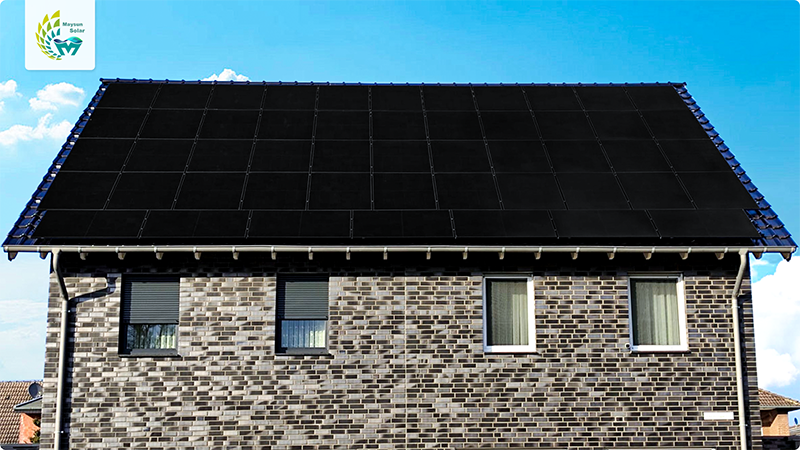
430-460W Twisun Pro Glass-Glass Modules
The Twisun Pro Glass-Glass module utilizes lightweight double-glass technology, advanced N-TOPCon technology, and 1/3-cut cell technology, achieving a 40% reduction in operating temperature and a 7.22% increase in power output. It is an optimal choice for maximizing efficiency in residential rooftop solar systems.
- Unique 1/3 Cut Cell Technology:The high-voltage, low-current design effectively minimizes current and series resistance losses, leading to lower operating temperatures. This results in a 7.22% power gain compared to conventional half-cell technology, enhancing return on investment.
- High Safety Standards: The N-TOPCon cell and 1/3-cut technology reduce the module’s operating temperature by 40%, lowering the risk of overheating and fire, thereby protecting your property.
- Lightweight Design: At just 21 kg, the module is easy to transport and install, significantly reducing the load on the roof. This makes the durable Twisun Pro module suitable for installation on various roof types without adding extra stress.
- Distinctive All-Black Design: The all-black back glass with black mesh not only provides a unique visual appeal but also optimizes photovoltaic performance by reducing front-side light loss, improving light absorption efficiency by 1.5%.
- Excellent Low-Light Performance: The high-voltage characteristics of the Twisun Pro module enable early power generation and extended operation in low-light conditions, increasing overall energy output. It maintains performance in cloudy or wintery conditions, ensuring consistent power production.
- Ultra-Low Degradation and Extended Warranty:The module features a degradation rate of only 1% in the first year, with a subsequent annual degradation rate of 0.4%. Maysun Solar provides a 30-year product and power warranty, ensuring long-term reliability and performance.
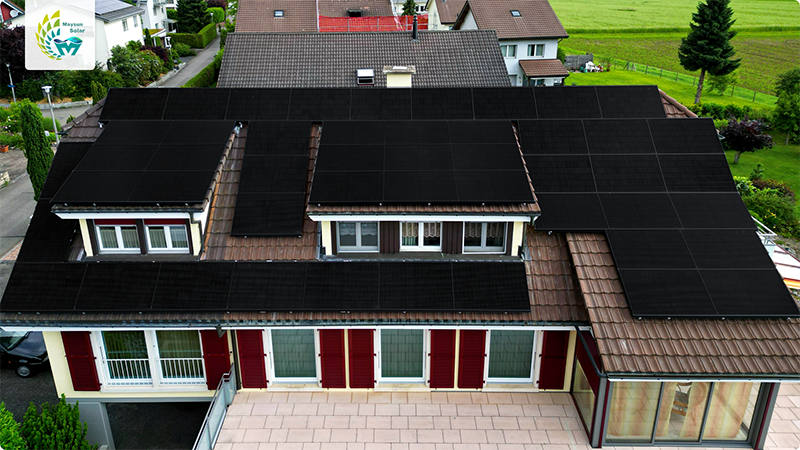
Commercial and Industrial Rooftop Solar
Two common installation methods: flat laying for steel structure roofs and angled mounting for strong concrete roofs.
Flat Laying Method (Suitable for Steel Structure Roofs with Limited Load Capacity):
System Requirements:
Excellent Heat Dissipation: Monofacial modules generally offer better heat dissipation compared to bifacial modules. They maintain a temperature that is 10-15 degrees lower, improving power output by about 5% for the same power rating, which contributes to higher efficiency and longevity.
Lightweight Design: To reduce the load on the roof, lightweight or relatively lighter monofacial modules should be used.
Low Temperature Coefficient: Modules should have a low temperature coefficient to ensure efficient power generation even in high temperatures and poor heat dissipation conditions.
Glare-Free Design: Solar panels should feature low reflectivity to minimize glare and prevent light pollution, improving environmental friendliness and reducing impact on surrounding areas and residents.
Anti-Hot Spot Performance: The modules should have excellent anti-hot spot capabilities to ensure safe operation in diverse environmental conditions and prevent fire hazards caused by hot spots.
Outstanding Power Generation Performance: Panels should offer high efficiency, low degradation rates, and good low-light performance to ensure stable output under various lighting conditions.
Recommended Modules for Steel Structure Flat Roofs:
580W-600W TOPCon Modules
- High Photovoltaic Conversion Efficiency:TOPCon technology allows solar panels to achieve theoretical efficiencies up to 28.7%, approaching the theoretical limit of crystalline silicon cells, thereby enhancing power generation efficiency.
- High Bifacial Rate:Optimized cell structure in TOPCon technology achieves a bifacial rate of over 85%, enabling more effective capture and utilization of light to generate more electricity.
- Low Hot Spot Effect:TOPCon cells exhibit outstanding performance stability, reducing the likelihood of hot spots even under prolonged outdoor conditions.
- Excellent Low-Light Performance: With exceptional low-light response, TOPCon panels maintain high power output even in cloudy or twilight conditions.
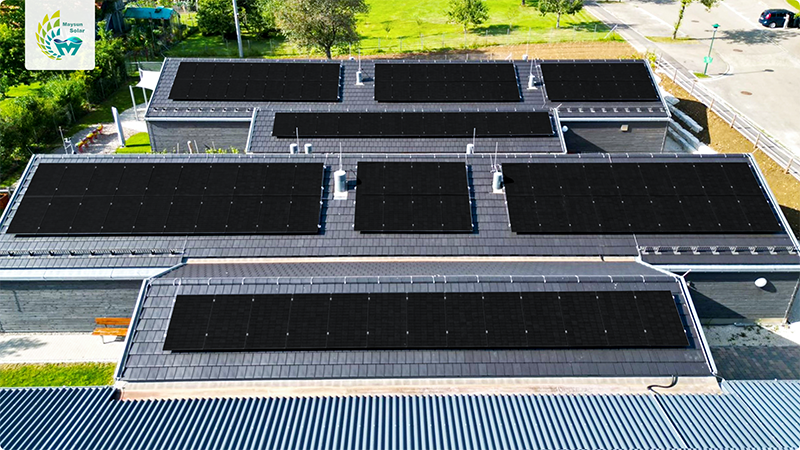
430-460W IBC Glass-Backsheet Black Frame Modules
The black frame modules offer a balanced aesthetic appeal, making them suitable for applications where visual harmony is important. Unlike all-black modules, they do not excessively absorb heat, which can be advantageous in maintaining efficient performance.
Front-Side Busbar-Free Design:
- The modules feature a clean, grid-free surface that enhances their aesthetic appeal, making them suitable for residential and commercial applications.
- With a light reflectivity of only 1.7%, the design effectively eliminates light pollution and glare issues, ensuring no disturbance to nearby residents or the environment.
- The absence of metal electrodes on the front broadens the light absorption range, allowing energy generation during early morning and late evening hours, with a potential gain of up to 2.01%.
Back Contact Technology:
- Even in the presence of shading, the flow of current on the back significantly reduces the hot-spot effect, enhancing the system’s safety and durability.
Glass-Backsheet Structure:
- Lightweight, it not only reduces the load on the roof but also eases the burden on installers, making transportation and installation more flexible.
- The module’s excellent heat dissipation further enhances energy generation efficiency and lowers the risk of fire.
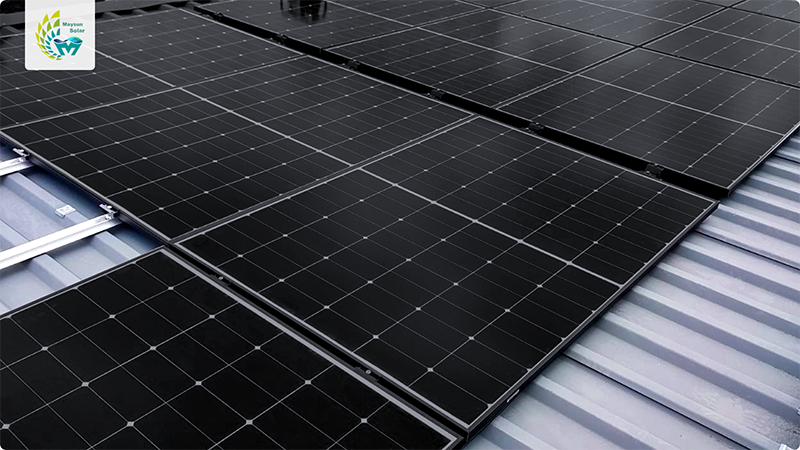
Angle Bracket Installation (Suitable for High-Load Cement Roofs):
System Requirements:
Bifacial Power Generation: Uses silver modules with no light transmittance, effectively utilizing ambient scattered and reflected light to enhance power efficiency.
Low Cost: Utilizes mature, low-cost large-format photovoltaic modules, facilitating easy installation and reducing installation costs.
Environmentally Friendly: Made from eco-friendly materials and processes, minimizing negative environmental impacts and ensuring sustainability throughout production and usage.
Excellent Power Performance: Features outstanding power generation capabilities, including high conversion efficiency, low power degradation, and good low-light performance, ensuring stable and efficient energy output under various lighting conditions.
Recommended Modules for Cement Flat Roofs:
575W-585W TOPCon Glass-Glass Modules;690W-700W TOPCon Glass-Glass Modules
- High Conversion Efficiency:TOPCon technology enables solar panels to achieve a theoretical conversion efficiency of up to 28.7%, close to the theoretical limit for silicon cells, enhancing power generation efficiency.
- High Bifacial Rate:The optimized cell structure of TOPCon technology achieves a bifacial rate of over 85%, allowing for more effective capture and utilization of light, thereby generating more power.
- Low Hotspot Effect:TOPCon cells exhibit excellent performance stability, reducing the likelihood of hotspot formation even under prolonged outdoor conditions.
- Outstanding Performance in Low Light:TOPCon cells have superior low-light response capabilities, maintaining high power output during cloudy days or dusk.
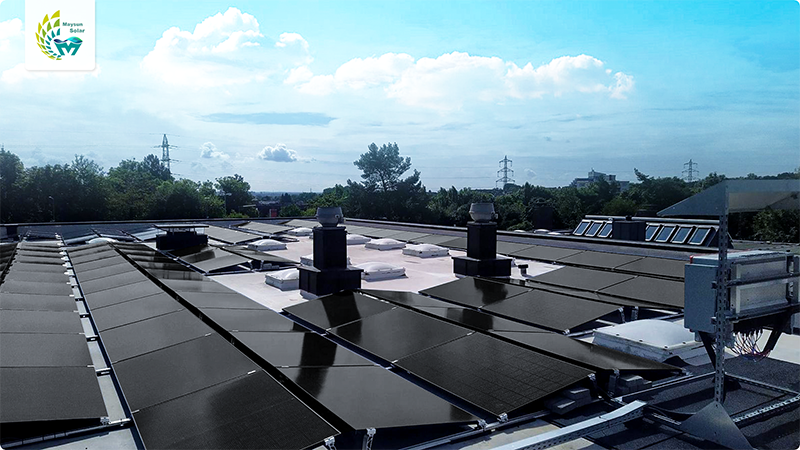
Balcony Photovoltaics
System Requirements:
Visual Consistency: The photovoltaic modules should align with the overall design style of the balcony, ensuring aesthetic appeal and maintaining architectural harmony.
Lightweight Design: Modules need to be as lightweight as possible to minimize pressure on the balcony structure, ensuring safety and facilitating transportation and installation.
Shadow Tolerance: Given that balconies may be affected by shadows from nearby buildings or objects, modules should have strong shadow tolerance capabilities to ensure efficient power generation even under partial shading conditions.
Easy Installation (DIY): Modules should be easy to install and suitable for DIY, allowing users to perform installation and maintenance without requiring professional technical support.
Recommended Balcony Photovoltaic Product:
Balcony Solar Power Plant
- Lightweight Design:Each kit weighs only 14 kg and features bifacial power generation, making transportation and installation extremely convenient, tailored to the unique needs of balconies.
- Plug and Play:Simple design allows users to easily install the kit themselves without needing professional assistance, achieving true ease of personal installation.
- High Investment Return:The investment return rate exceeds 100% in the first year, with cost recovery achievable within 3 to 5 years, offering significant economic benefits.
- All-Black Design:The product features an all-black design that seamlessly integrates with most European balcony styles, enhancing energy efficiency while maintaining aesthetic appeal.
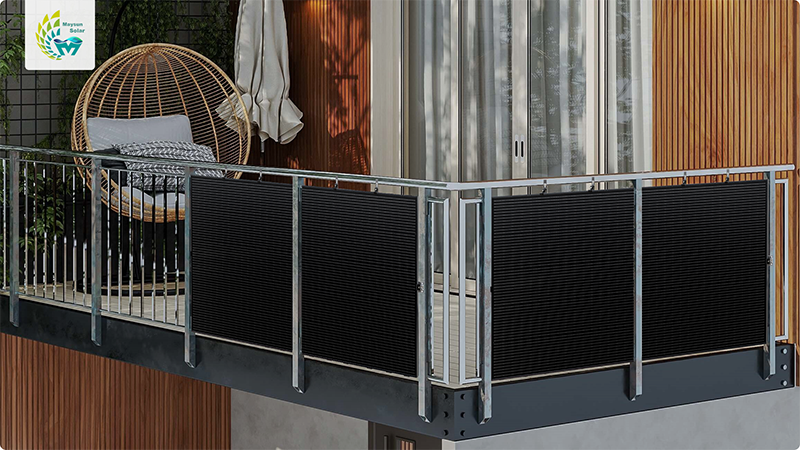
Solar Carport
System Requirements:
Bifacial Double Glass Power Generation: Features a bifacial double glass design, enabling power generation from both the front and back surfaces, enhancing overall efficiency and durability.
Visual Consistency: Should match the appearance of the carport, with aesthetically pleasing components available in black and silver options provided by Maysun Solar.
Environmentally Friendly and Excellent Performance: Modules should use eco-friendly materials and processes to minimize environmental impact, while providing high efficiency, including low degradation rates and excellent low-light performance to ensure stable output under various lighting conditions.
High Bifacial Rate: Designed with a high bifacial rate to maximize the use of scattered and reflected light from the environment, increasing power generation.
Recommended Component:
430W HJT Glass-Glass Module
- Double Glass Power Generation:Achieves dual-sided power generation through a double glass design, offering an additional 10% to 35% power gain.
- High Bifacial Rate: Features a symmetrical structure and efficient conductive grid, with back-side power gain exceeding 95%, significantly improving efficiency.
- Low Degradation Performance:Exhibits a low degradation rate, with power output reduction not exceeding 11.1% over 30 years, ensuring a longer lifespan.
- Excellent Low-Light Power Generation: Maintains good performance in low-light conditions, ensuring efficient power generation throughout the day.
- Ultra-Low Temperature Coefficient:Features a low temperature coefficient (-0.24%/°C), providing stable power performance at high temperatures and minimizing power loss.
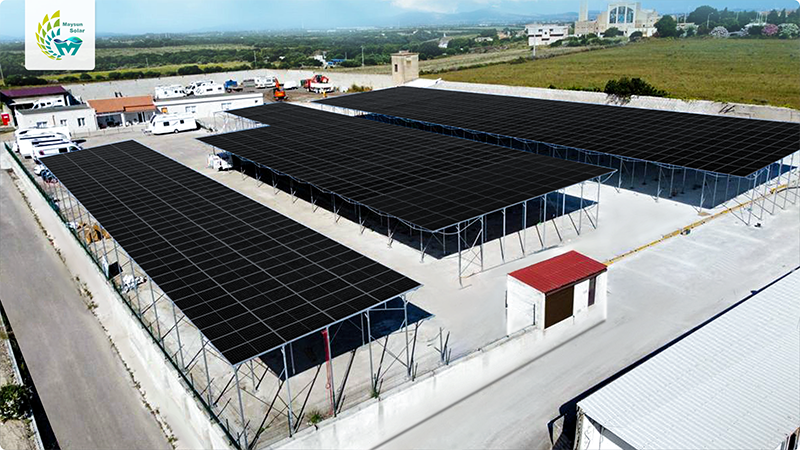
430W-450W TOPCon Glass-Glass Modules
- High Conversion Efficiency:TOPCon technology enables solar panels to achieve a theoretical conversion efficiency of up to 28.7%, close to the theoretical limit for silicon cells, enhancing power generation efficiency.
- High Bifacial Rate:The optimized cell structure of TOPCon technology achieves a bifacial rate of over 85%, allowing for more effective capture and utilization of light, thereby generating more power.
- Low Hotspot Effect:TOPCon cells exhibit excellent performance stability, reducing the likelihood of hotspot formation even under prolonged outdoor conditions.
- Outstanding Performance in Low Light:TOPCon cells have superior low-light response capabilities, maintaining high power output during cloudy days or dusk.
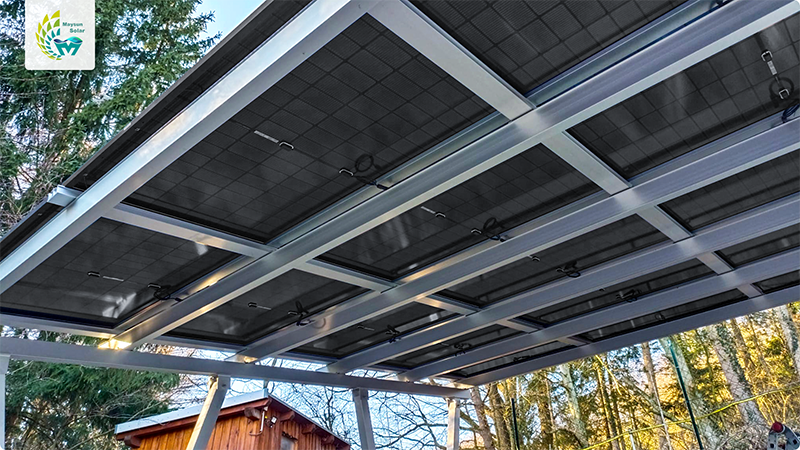
Agricultural Photovoltaic Power Stations
System Requirements:
Bifacial Power Generation and Light Transmission: Bifacial technology effectively utilizes reflected sunlight to enhance power generation. An appropriate light transmission design promotes crop growth while maximizing electricity output, balancing both agricultural and energy needs.
Ammonia and Salt Mist Resistance: The photovoltaic modules should have excellent resistance to ammonia and salt mist corrosion, ensuring stable performance in high ammonia and severe salt mist environments. This makes them particularly suitable for agricultural and coastal areas, guaranteeing long-term reliability.
Weather Resistance: Superior weather resistance allows the modules to withstand various climatic conditions, including extreme heat, cold, and high humidity. This durability ensures long-term stability and reduces maintenance costs.
Environmental Friendliness and High Efficiency: The modules should focus on environmental considerations, using recyclable materials and processes that reduce environmental impact while maintaining high efficiency.
Low Cost: Large-format design allows for covering more area, reducing the cost per watt of electricity. This design is cost-effective for large-scale installations, meeting the needs of extensive photovoltaic power stations.
Low Voltage Design: Low voltage design (around 17A) supports more panel series configurations, reducing complex parallel connections and installation costs.
Recommended Components:
570W-600W TOPCon Modules;690W-720W HJT Modules
- High Bifacial Rate:Maximizes reflected light usage, enhancing conversion efficiency.
- High Weather Resistance:Provides excellent protection against water, dust, UV, temperature variations, and salt mist, ensuring stable operation in extreme climates.
- Large-Format Design:Offers cost benefits for large-scale installations with a larger coverage area.
- Low Voltage Design:Facilitates efficient series connections and lowers installation costs.
- Environmental Design:Made with recyclable materials, ensuring eco-friendliness.
- Extended Warranty:Comes with up to 30 years of product and performance warranty, featuring durable, corrosion-resistant double glass and POE encapsulation.
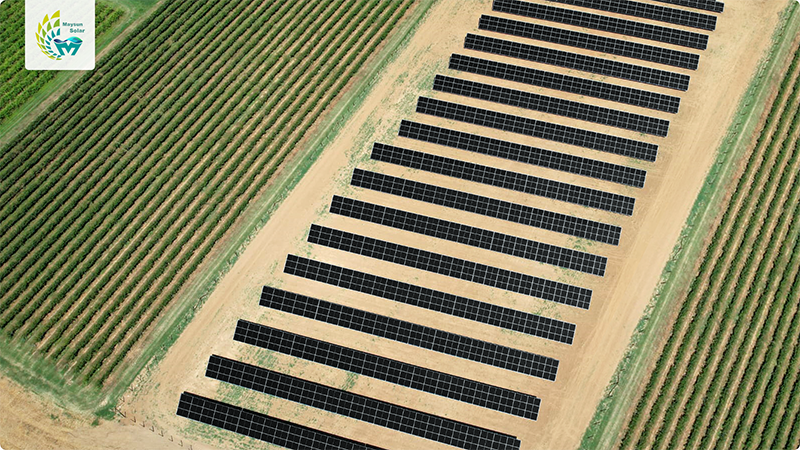
Utility-Scale Solar Power Plant
System Requirements:
Low Cost: The large-format design covers more area, reducing the cost per watt. This design is cost-effective for large-scale installations, making it suitable for extensive photovoltaic power station projects.
Low Voltage Design: Supports more panels in parallel, optimizing the overall system configuration and efficiency. By lowering the voltage, the system enhances power output and compatibility while ensuring safety.
Bifacial Power Generation: High bifacial rate design effectively utilizes reflected light from the ground and surroundings, significantly boosting overall power generation. This technology not only improves the efficiency of photovoltaic modules but also optimizes light energy utilization, ensuring higher power output under various lighting conditions.
Stable Performance: Photovoltaic modules have low degradation rates, ensuring long-term stable power generation and reducing long-term operational and maintenance costs.
Recommended Components:
660W-680W PERC Modules;580W-600W TOPCon Modules;690W-710W TOPCon Modules
- Large-Format Design:Covers more area, lowering installation costs per watt and ideal for large-scale installations.
- Low Voltage Design: Supports more panels in series, simplifies installation, and optimizes system configuration.
- Bifacial Glass-Glass Modules: Long lifespan with high weather resistance, offering 5-30% additional power generation from the rear, enhancing station returns.
- Ample Capacity:Suitable for bulk supply, making it an ideal choice for extensive deployment.
- Higher Economic Efficiency:Features materials resistant to salt, acid, and ammonia, exhibiting excellent shading performance and lower operating temperatures, ensuring greater economic benefits over the long term.
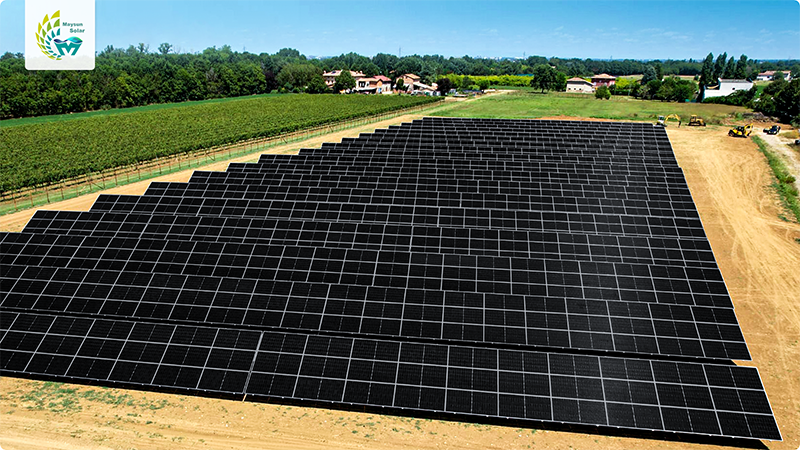
Conclusion
Choosing the right photovoltaic components significantly impacts both power generation efficiency and economic returns. By considering environmental conditions, climate, budget, and installation requirements, you can select the most suitable component type to achieve optimal investment returns and system performance. Whether for residential, commercial, carport, or agricultural photovoltaic projects, understanding the characteristics and application scenarios of different types of components will help you make informed decisions.
For the past 16 years, Maysun Solar has specialized in the production and sales of solar modules, with an annual production capacity of 2 GW. Our products have received multiple international certifications, including TUV, CE, IEC, ETN, Fire Class 1, and ISO. We have service teams and stock available at warehouses around the world, ensuring rapid response and local support. We hope this article provides valuable insights for your photovoltaic projects. Should you have any questions or require further information, please do not hesitate to contact our specialists. Maysun Solar is always here to assist you.
You may also like:

Empowering Factories with Solar Energy A Strategic Tool for Controlling Production Electricity Costs
Commercial and industrial solar is becoming a key solution for factories to reduce electricity costs and hedge against price fluctuations. This article systematically analyzes its deployment models, cost advantages, and sustainable value pathways.

How Businesses Can Offset Carbon Taxes with Solar Power
This article analyzes the latest carbon tax policies and photovoltaic deduction strategies, helping European businesses legally reduce taxes, increase profits through solar investment, and achieve a win-win situation for both economy and environment.

Forecast and Response: Seizing the Next Decade’s Growth Dividend in Europe’s Commercial and Industrial Photovoltaics Market
Maysun Solar analyzes the growth trends of commercial and industrial photovoltaics in Europe over the next ten years, from policies and ESG to technological innovation, helping companies seize the initiative in the energy transition.

How to Calculate Solar System ROI and Optimize Long-Term Returns?
Solar power is becoming a key solution for businesses to reduce costs and improve efficiency. Accurately calculating ROI and optimizing long-term returns are essential to maximizing investment value.

Will Agrivoltaics Affect Crop Growth?
Agrivoltaics combines solar energy and agriculture to reduce up to 700 tons of CO₂ per MW, improve water use, and boost crop growth for sustainable farming.

6.5 Billion Loss Hits Photovoltaics: Reshaping or Elimination?
In 2025, the photovoltaic market may see a turnaround as some companies take early action. A €6.5 billion loss is driving businesses to explore new growth areas like energy storage and hydrogen. Which giants will break through? Industry transformation is accelerating!
